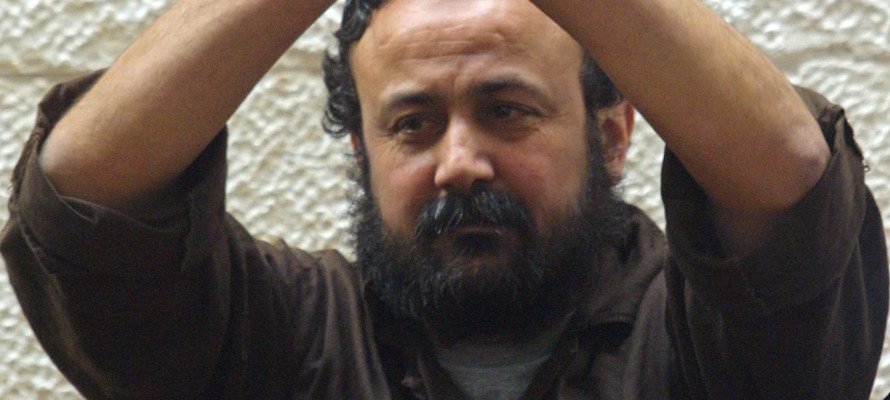If Mahmoud Abbas follows through with the first Palestinian elections in a decade and a half, he could get beaten by a terror boss from Hamas or an imprisoned intifada leader from his own party.
By United with Israel Staff and AP
Palestinian leader Mahmoud Abbas has announced that the first presidential and parliamentary elections since 2006 will be held later this year. But the road to the vote is littered with obstacles and fraught with rivalries among brutal Palestinian terror groups.
Parliamentary elections are to be held on May 22, followed by a presidential vote on July 31. The rival factions will meet in Egypt later this month.
With the aging Abbas at the helm in Palestinian Authority-controlled areas of Judea and Samaria, and the Hamas terror group entrenched in the Gaza Strip, there are many outstanding questions.
Palestinian Factions: Bitter, Violent Rivalries
Hamas and Fatah have spent years battling each other, with skirmishes between the factions breaking out periodically both in the Gaza Strip and Judea and Samaria.
While Hamas has been officially labelled a terrorist organization by Israel and the Western world, it won the last parliamentary elections in 2006.
The international community, however, largely refused to deal with any government that included Hamas figures.
After fierce street battles, Hamas routed Fatah forces and seized power in Gaza in 2007. It retains control of the territory and regularly permits terrorists from the Strip’s rogue Islamic militias to launch rockets at Israeli civilians.
Numerous attempts to bring the factions together have failed, with terms for holding elections a major sticking point. Both sides have been unwilling to cede power and compromise — and it’s not clear whether attitudes have changed.
In Gaza, Hamas has created its own terror-focused feudal state, brutalizing the local population, which it uses as human shields, and hijacking aid organizations like the United Nation’s Palestinian agency UNRWA.
Abbas, who oversees Palestinian-controlled areas of Judea and Samaria, and has been the target of at least one assassination attempt by Hamas terrorists.
Terror Leaders Emerge as Front Runners
Since the dearth of Yasser Arafat in 2004, Abbas has led the Palestine Liberation Organization, a group “responsible for scores of acts of terrorism from its creation, resulting in the deaths of thousands of civilians,” according to the Anti-Defamation League.
While Abbas has repeatedly said he would not seek another term as president, he has not groomed a successor.
It’s possible that he will run again.
Several senior Fatah members in their 60s and 70s consider themselves as potential candidates, but no clear favorite has emerged. One front-runner is Marwan Barghouti, a leader of the Second Intifida, a massive wave of Palestinian terror that claimed the lives of over 1,000 Israelis.
Barghouti done well in opinion polls, but is serving multiple life terms in an Israeli prison for his crimes.
A challenger from the Hamas terror group is also up in the air. Hamas leader Ismail Haniyeh, who led the group’s electoral list in the 2006 vote, left Gaza in 2019 for what was billed a regional tour, never to return.
Haniyeh, who now leads the movement’s decision-making body, was for years the group’s self-styled prime minister, running Gaza during the blockade and three wars with Israel.
As a candidate and later head of the territory’s government, Haniyeh portrayed himself as an average person still living in the crowded al-Shati refugee camp on the edge of Gaza City, but that image did not last long.
People in Gaza, many poor and jobless because of the blockade that was imposed in response to Hamas’ policies, whispered about Haniyeh’s obscene wealth. Since he left Gaza, images of his often luxurious stays in hotel suites in Qatar have leaked online, a jarring contrast to the grim reality of Gaza’s 2 million people.
Shifting American Priorities?
The Palestinians cut off ties with the Trump administration while the American leader brokered deals to establish ties between Israel and four Arab countries, shattering a longstanding wall of Arab opposition to normalization with Israel until it made major concessions to the Palestinians.
The Trump administration cut funding to the Palestinians, further weakening their position.
While President-elect Joe Biden is likely to return to the pro-Palestinian policies favored by his former boss, Barack Obama, he is expected to first direct his attention to more urgent foreign policy issues, such as the growing Iranian nuclear threat.
Abbas apparently hopes to start the relationship with the Biden administration on good terms by meeting the West’s long-standing demand that he hold overdue elections.
Abbas may also have felt pressure from the European Union, one of the most important backers of his regime, the Palestinian Authority. Similar pressure appears to have been exerted by Turkey and Qatar on Hamas.
Bring Joy to Israeli Soldiers - Send Winter Care Packages!
We are honored to thank the young men and women of the IDF who risk their lives every day to defend the citizens of Israel.
Join us in sending winter care packages and personal notes of support to Israeli soldiers who are out in the cold all day.
Warm up a soldier's heart with essential winter wear including fleece jackets, hats, gloves and more. Keep an entire unit warm!
THE SOLDIERS REALLY APPRECIATE YOUR LOVE AND CONCERN!
Click Here to Send Your Gift and Personal Note to Israeli Soldiers

